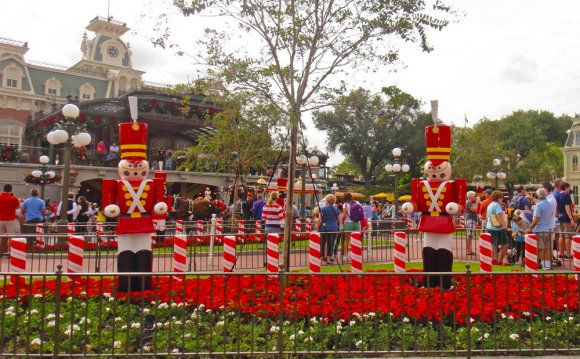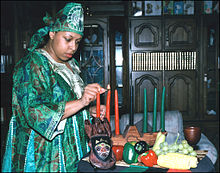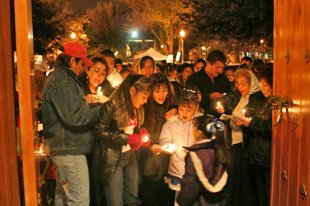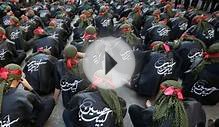
 During the winter time in the United States, many department stores start decorating in typical Christmas colors of red and green with wreaths, lights and ribbons. However, there are so many more winter holidays that exist around the world- and we would like to share a few with you today!
During the winter time in the United States, many department stores start decorating in typical Christmas colors of red and green with wreaths, lights and ribbons. However, there are so many more winter holidays that exist around the world- and we would like to share a few with you today!
Besides, who can say no to more reasons to celebrate?
Christmas: Celebrated all around the world, Christmas falls on December 25th each year to celebrate the birth of Jesus Christ. The word “Christmas” literally means “Christ’s Mass, ” and is a feast central to the Christian liturgical year. Furthermore, it is a civil holiday in many of the world’s nations and an integral part of the Christmas and holiday season. Celebratory decorations typically include “decking the halls” with holm, ivy, and other greens, and nativity scenes are popular in several countries. And of course, a Christmas tree decorated with lights and ornaments is usually a staple to the house, particularly in the United States.
Hanukkah: Chanukah, which has many different transliteration spellings (you’ve already seen two), is an eight-day Jewish holiday that celebrates the rededication of the Holy Temple in Jerusalem after the Maccabean Revolt (2nd century BCE). The holiday is observed for eight nights and days, and because it starts on the 25th day of Kislev on the Hebrew Calendar, it can fall anywhere from late November to late December on the Gregorian calendar.
 Hanukkah rituals include the lighting of the Menorah, which consists of 9 candles in a holder. One candle is lit on each of the eight nights of Hanukkah, and the center candle is used for lighting the others. Other Hanukkah family customs include singing Hanukkah songs, reciting Psalms, and, especially in North America and Israel, exchanging presents.
Hanukkah rituals include the lighting of the Menorah, which consists of 9 candles in a holder. One candle is lit on each of the eight nights of Hanukkah, and the center candle is used for lighting the others. Other Hanukkah family customs include singing Hanukkah songs, reciting Psalms, and, especially in North America and Israel, exchanging presents.
Kwanzaa: This is a week-long holiday celebrated in communities in the United States and Canada, as well as in the Western African Diaspora to honor African heritage in African-American culture. Created by Maulana Karenga in 1966, it is observed from December 26-January 1, and ultimately ends with a feast and the exchange of gifts. There are seven core principles that are celebrated during Kwanzaa, including unity, self-determination, collective work and responsibility, cooperative economics, purpose, creativity, and faith. Celebration of Kwanzaa can include colorful household decorations with art and African cloth, readings and reflection of the African Pledge, and a candle-lighting ceremony with a kinara (which holds just two less candles than the Menorah!)

Las Posadas: With its origins in Spain, Las Posadas is a nine-day celebration that is now primarily celebrated in Mexico, Guatemala, and parts of the Southwestern United States. The roots of this holiday are in Catholicism but several different branches of Christian Latinos follow the tradition. During the celebration, a procession moves from house to house with a candle inside a paper lampshade, stopping at each home to sign and pray. Eventually, the procession ends at a home or church, and the celebration continues with caroling, feasting, and pinata breaking!
Eid-al-Adha: Also referred to as the Feast of the Sacrifice, Eid-al-Adha is an important Islamic holiday celebrated worldwide to honor the willingness of the prophet Abraham to sacrifice his first-born, Ishmael, on God’s command. Last year, the holiday took place in late October, but the date greatly varies depending on the Islamic lunar calendar. To celebrate, families traditionally dress in their finest clothing to perform prayer in a large congregation or mosque and sacrifice their best halal domestic animals as a symbol of Abraham’s sacrifice. Ultimately, most of the meat is shared with friends, neighbors, and the poor, to ensure that none are without a chance to partake in the holiday feast!
Diwali: This past year, this five-day Hindu festival began on November 13th and is an official holiday in India, Nepal, Sri Lanka, and Myanmar, among others. The festival is also referred to as the “festival of lights” and celebrates both the attainment of nirvana by Mahavira (an Indian Sage), as well as a Death Anniversary of Swami Dayanand (Hindu religious leader).
The word “Diwali” is a contraction of a word translating to “row of lamps, ” as the holiday involves the lighting of small clay lamps to symbolize the victory of good over evil. Firecrackers are burst and, during the festival, all those celebrating wear new clothes and share sweets with family and friends.
There are infinitely more worldwide celebrations that you may not have ever heard of, but taking time to learn about just a few more when possible could be invaluable to gaining a better understanding of the world. Keeping that in mind, hopefully now you can extend your holiday season even longer!
RELATED VIDEO












